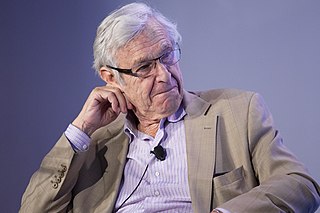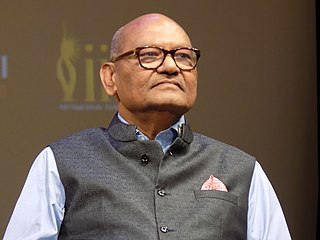Top 1200 Capitalist Economy Quotes & Sayings
Explore popular Capitalist Economy quotes.
Last updated on November 5, 2024.
Though foreign loans are indispensable for the emancipation of the rising capitalist states, they are yet the surest ties by which the old capitalist states maintain their influence, exercise financial control, and exert pressure on the customs, foreign and commercial policy of the young capitalist states.
The way we get past capitalism is by building on the healthy non-capitalist aspects of our world while we also do pitched battle with the capitalist ones that we have a fair chance of winning against. In that way we build a better world and shrink the destructive capitalist practices that are part of the social fabric.
Productivity-the amount of output delivered per hour of work in the economy-is often viewed as the engine of progress in modern capitalist economies. Output is everything. Time is money. The quest for increased productivity occupies reams of academic literature and haunts the waking hours of C.E.O.s and finance ministers.
The degeneration of the revolution in Russia does not pass from the revolution for communism to the revolution for a developed kind of capitalism, but to a pure capitalist revolution. It runs in parallel with world-wide capitalist domination which, by successive steps, eliminates old feudal and Asiatic forms in various zones. While the historical situation in the seventeenth, eighteenth and nineteenth centuries caused the capitalist revolution to take liberal forms, in the twentieth century it must have totalitarian and bureaucratic ones.
Today it's fashionable to talk about the New Economy, or the Information Economy, or the Knowledge Economy. But when I think about the imperatives of this market, I view today's economy as the Value Economy. Adding value has become more than just a sound business principle; it is both the common denominator and the competitive edge.
The path the capitalist revolution will take faces in exactly the opposite direction from that taken by the communist revolution. It seeks to diffuse the private ownership of capital instead of abolishing it entirely. It seeks to make all men capitalists instead of preventing anyone from being a capitalist by making the State the only capitalist.
Productivity - the amount of output delivered per hour of work in the economy - is often viewed as the engine of progress in modern capitalist economies. Output is everything. Time is money. The quest for increased productivity occupies reams of academic literature and haunts the waking hours of C.E.O.s and finance ministers.
We can't have extraordinary dynamism, innovation, and change in the economy and expect to have predictability and stability in our personal lives. It's not as if there are these big, giant institutions existing between us and the economy. In fact, these institutions have become tissue-thin. There is no mediation anymore. We are the economy; the economy is us.
We are a great capitalist society, that works most of the time. We do need to take better care of our people and fix the access, cost, and quality of healthcare. But we need to act intelligently. We needed the intervention of government to keep the economy from falling into an abyss, but we must now encourage the creation of business - not burden it.
The fundamental differences between Marxian and traditional orthodox economics are, first, that the orthodox economists accept the capitalist system as part of the eternal order of Nature, while Marx regards it as a passing phase in the transition from the feudal economy of the past to the socialist economy of the future.
The capitalist engine is first and last an engine of mass production which unavoidably also means production for the masses. . . . It is the cheap cloth, the cheap cotton and rayon fabric, boots, motorcars and so on that are the typical achievements of capitalist production, and not as a rule improvements that would mean much to the rich man. Queen Elizabeth owned silk stockings. The capitalist achievement does not typically consist in providing more silk stockings for queens but in bringing them within reach of factory girls.
Capitalism has created a situation called scarcity. And that scarcity is not natural, it's socially induced. Along with that sense of scarcity, or feeling of scarcity, is a feeling of economic insecurity. Along with that is a feeling of deprivation... And unless we can demonstrate that that feeling is not justified technologically, we will not be able to speak intelligently to the great majority of people and reorganize our economy so that we really know what needs are rational and human and what have been created, almost fetishisticaly, by the capitalist economy.
I think capitalism will not disappear, but it's going to increasingly not be the exclusive arbiter of economic life. It's going to have to find value in interacting with the sharing economy on many levels. And this hybrid system that's already emerging among millennials is going to be a mature system where, by midcentury, part of the day will be in the capitalist market, part of the day in the sharing economy, depending on your marginal costs.
As a matter of fact, capitalist economy is not and cannot be stationary. Nor is it merely expanding in a steady manner. It is incessantly being revolutionized from within by new enterprise, i.e., by the intrusion of new commodities or new methods of production or new commercial opportunities into the industrial structure as it exists at any moment.
Capitalism is very far from a perfect system, but so far we have yet to find anything that clearly does a better job of meeting human needs than a regulated capitalist economy coupled with a welfare and health care system that meets the basic needs of those who do not thrive in the capitalist economy. If we ever do find a better system, I'll be happy to call myself an anti-capitalist.
There are different varieties and forms of capitalism. There are priorities within the capitalist society so that you can have countervailing forces come in and empower your working people and your poor people. There are capitalist societies that do not have poverty. America needs to understand that.



















































